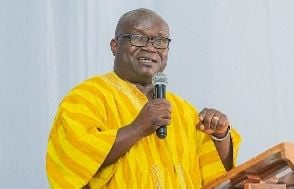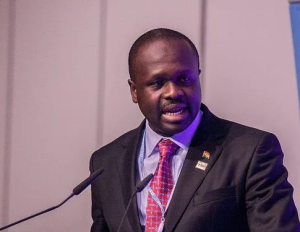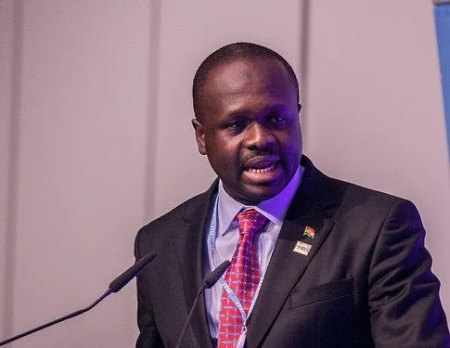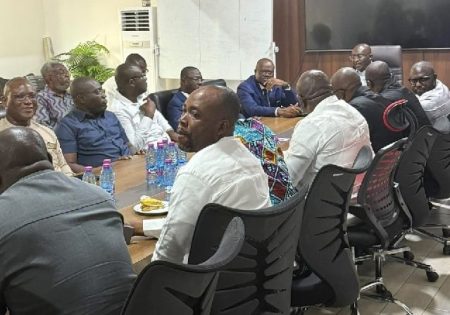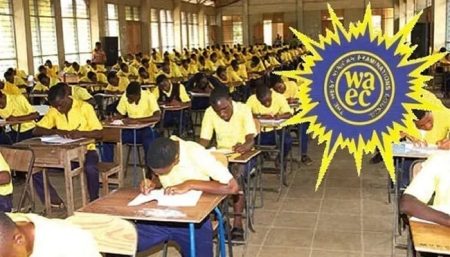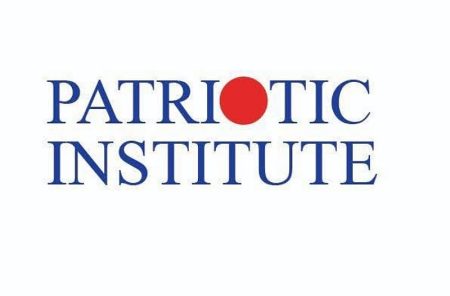Justin Frimpong Kodua, the General Secretary of the New Patriotic Party (NPP), has delivered a significant public apology on behalf of the party, acknowledging shortcomings in their governance during their previous term in office. This act of contrition signifies a crucial step in the NPP’s strategy to regain public trust and reposition themselves for a potential return to power in the 2028 elections. Kodua’s statement, delivered during a media engagement, admitted that despite the party’s best efforts, their performance was not flawless. This admission of imperfection is a departure from the typical political rhetoric that often avoids acknowledging mistakes, and it sets a precedent for greater accountability within the party. The apology serves as a foundation for the NPP’s ongoing internal review and restructuring process, which aims to learn from past errors and refine their approach to governance.
The NPP’s tenure, which ended with their defeat in the 2024 general elections, has provided them with an opportunity for introspection and reassessment. Kodua emphasized that this period of reflection is being utilized to identify areas where they fell short and to develop strategies for improvement. This commitment to learning from past experiences is critical for the party’s future prospects, demonstrating a willingness to adapt and evolve based on feedback and outcomes. The party’s acknowledgment of past shortcomings is not merely an act of admitting fault; it is a strategic move to rebuild trust with the electorate. By acknowledging their mistakes, the NPP aims to portray themselves as a party capable of self-correction, learning, and growth, thereby increasing their appeal to voters who may have been disillusioned by their previous performance.
The NPP’s strategy of admitting past failures and committing to future improvement is a multi-faceted approach aimed at resonating with a broader segment of the population. It acknowledges that perfection is unattainable in governance, but striving for excellence and learning from missteps are essential qualities for any political entity. Kodua’s statement serves as a public declaration of the party’s commitment to this principle. This commitment to learning and improvement is a cornerstone of the NPP’s current efforts to rebuild and reposition itself for future electoral success.
Kodua’s public apology and acknowledgement of past shortcomings signify a strategic move by the NPP to rebuild trust with the Ghanaian electorate. This move demonstrates a willingness to accept responsibility for past failures and a commitment to learning from these experiences. Such a gesture can be instrumental in regaining public confidence and positioning the party for future electoral success. The NPP’s current focus on internal review and reform further underlines this commitment to change and improvement. By openly acknowledging their imperfections, the NPP seeks to differentiate themselves from other political entities that may be hesitant to admit mistakes. This act of transparency aims to create a more open and accountable image for the party, potentially attracting voters who value honesty and self-reflection in their political leaders.
The NPP’s commitment to learning from past mistakes and implementing reforms is a key element of their strategy to regain public support. Kodua’s statement highlights the party’s intention to build upon their successes while addressing and rectifying their past errors. This forward-looking approach demonstrates a proactive stance on continuous improvement and adaptation to the evolving needs and expectations of the Ghanaian populace. The party’s current focus on internal restructuring and policy refinement signals a commitment to tangible change, aiming to present a renewed and improved version of the NPP to the electorate.
In conclusion, Justin Frimpong Kodua’s public apology represents a significant step in the NPP’s efforts to rebrand and reposition themselves for the 2028 elections. By acknowledging past shortcomings and committing to learn from their mistakes, the party aims to regain public trust and present a renewed image to the electorate. This strategy of admitting fault, coupled with a focus on internal reform and policy review, demonstrates a proactive approach to addressing past failures and striving for future improvement. The NPP’s commitment to learning and adaptation is central to their efforts to rebuild and prepare for future electoral contests, signifying a willingness to evolve and better serve the Ghanaian people. This period of reflection and reform is crucial for the party’s long-term prospects, demonstrating a commitment to accountability and continuous improvement in governance.


